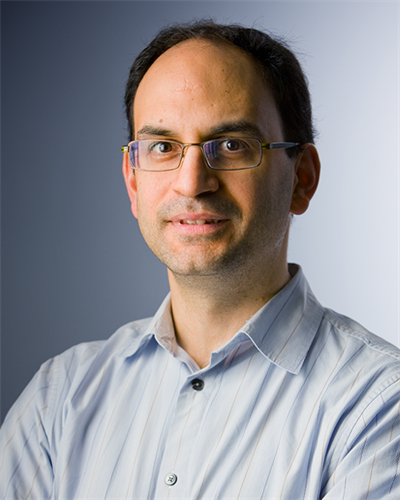Research/Areas of Interest
stem cell and tissue engineering, optogenetics, diabetes
Education
- Ph.D., University of Minnesota, Minneapolis, United States
- Dipl., Aristotle University of Thessaloniki, Thessaloniki, Greece
Biography
Emmanuel Tzanakakis is Professor of Chemical and Biological Engineering at Tufts University. He is also a member of the Clinical and Translational Science Institute of the Tufts Medical Center, and of the Cell, Molecular and Developmental Biology of the Tufts Graduate School of Biomedical Sciences. He earned his Ph.D. in Chemical Engineering from the University of Minnesota. Tzanakakis did his postdoctoral training at the Stem Cell Institute of the University of Minnesota and at the Diabetes Center of the University of California, San Francisco. His laboratory's research interests are in the area of stem cell engineering, particularly for diabetes and heart disease applications. Implementing a combination of experiment- and computation-based approaches, the overarching goal of his research is the realization of the potential of stem cells in regenerative medicine.
Emmanuel Tzanakakis' research interests include stem cell engineering, stem cell bioprocessing, and multiscale models of stem cell ensembles. Pluripotent stem cells self-renew extensively and give rise to multiple cell types of therapeutic significance. Tzanakakis' laboratory investigates the molecular determinants of stem cell commitment along particular lineages, mainly to heart muscle and pancreatic endocrine insulin-producing cells. Additionally, the lab's efforts concentrate on scalable expansion and differentiation, which are prerequisites for the realization of stem cell-based applications envisioned in regenerative medicine and tissue engineering.
Emmanuel Tzanakakis' research interests include stem cell engineering, stem cell bioprocessing, and multiscale models of stem cell ensembles. Pluripotent stem cells self-renew extensively and give rise to multiple cell types of therapeutic significance. Tzanakakis' laboratory investigates the molecular determinants of stem cell commitment along particular lineages, mainly to heart muscle and pancreatic endocrine insulin-producing cells. Additionally, the lab's efforts concentrate on scalable expansion and differentiation, which are prerequisites for the realization of stem cell-based applications envisioned in regenerative medicine and tissue engineering.
